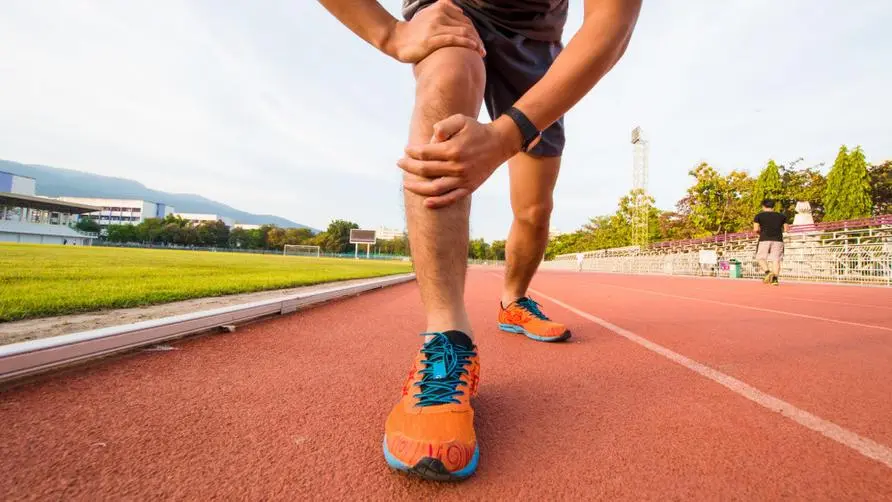Is running easy to injure your knees and damage your joints? Doctors dispel 3 major myths: "Not exercising" is the culprit of joint degeneration!

Is running easy to injure your knees and damage your joints? Doctors clarify: “Not exercising” is the culprit of joint degeneration!
“Running” is highly accessible and cheap. It is the most common exercise among Taiwanese people besides walking. However, many people are worried about knee degeneration or injury, so they stay away from running. Dr. Li Yanyu, director of Renyi Boai Rehabilitation Clinic, said in a social post that moderate running will not only not cause knee degeneration, but can even reduce the chance of knee degeneration and surgery, and called on the public not to hold wrong myths.
Dr. Li Yanyu said that literature has pointed out that moderate jogging can promote joint health and even reduce the chance of knee degeneration and surgery. In addition, there is also a comprehensive analysis literature that points out that non-competitive joggers are less likely to suffer from knee degeneration than competitive runners and sedentary people. Even if the average elder over 50 years old runs regularly, it will not increase the risk of knee joint degeneration.
Dr. Li Yanyu said that the benefits of running in medical evidence are as follows: reducing heart disease mortality, cancer mortality and all-cause mortality, reducing weight, reducing blood fat, increasing good cholesterol (high-density lipoprotein HDL), and preventing knee degeneration. It can even help improve your mood. If you experience obvious pain in your knee joints or feet after running, be aware that it may be caused by “incorrect running posture” or not stretching properly before running.
Shouldn’t knee pain after running happen? Doctors Answer Runners’ “3 Big Questions”
In addition to worrying about knee injuries caused by running, Dr. Li Yanyu said that people in the clinic often complain about obvious knee discomfort after running; there are also patients with chronic diseases who are afraid that running will affect their condition. In fact, it is not normal to experience knee pain after running. It may be caused by incorrect foot landing during running, or lack of proper stretching or warming up before or after running. It is recommended that people warm up before running and stretch muscles after running to relieve pain or discomfort, or use rollers, fascia guns and other tools to relax. If pain persists, it may be necessary to seek medical attention for further evaluation of the condition.
If you have no exercise habit, are currently overweight, or even suffer from chronic diseases, is running suitable for you? Dr. Li Yanyu explained that people who have never exercised or are obese can start with “low-impact exercise”, such as brisk walking, incline treadmills, sliding machines, stationary bicycles, water walking or swimming, and then can Persistent movement patterns dominate. If patients with chronic diseases such as hypertension and diabetes are concerned about running and other sports, they can consult a doctor for evaluation in advance or use the “PAR-Q Questionnaire” for screening according to the recommendations of the American College of Sports Medicine.
Dr. Li Yanyu explained that although moderate running will not hurt the knees, there are differences between individuals, and the “appropriate amount” may be slightly different for each person. However, basically if you run less than 20-40 kilometers a week, there is really no need to worry too much, or running for 30 minutes to an hour each time is also within the acceptable range. What most people have to worry about is “insufficient amount of exercise” rather than “excessive amount of exercise” . In addition, research shows that there is no significant difference in the impact of running more or less on mortality, so the focus is still on “exercise.”
Finally, Dr. Li Yanyu said that jogging is only one type of aerobic exercise, and the most taboo in exercise is “partial eclipse”. Overtraining in a single exercise is still not enough. Therefore, it is recommended that in addition to running, you can also combine it with your favorite sports such as brisk walking, mountain climbing, cycling, playing ball, etc., so as to achieve a certain heart rate and make you feel happy when doing it. In addition, don’t forget to combine aerobics with resistance training, core training and stretching exercises. It is not only more beneficial to weight loss, but also increases muscle mass and reduces the risk of injuries after exercise.
references:
J Am Coll Cardiol. 2014 Aug 5; 64(5): 472–481.
Br J Sports Med. 2020 Aug; 54(15):898-905.
Sports Med. 2015; 45(10): 1455–1468.
Psychiatr Danub. 2020 Sep;32(Suppl 2):233-235.
Further reading: What injuries can result from regular running? Doctor: If you run more than “this number” in one week, beware of “plantar fasciitis”





